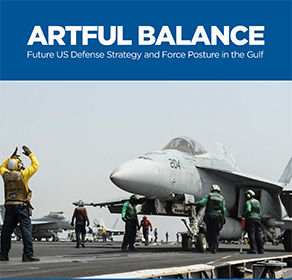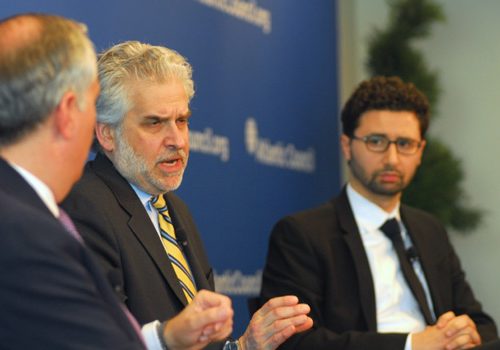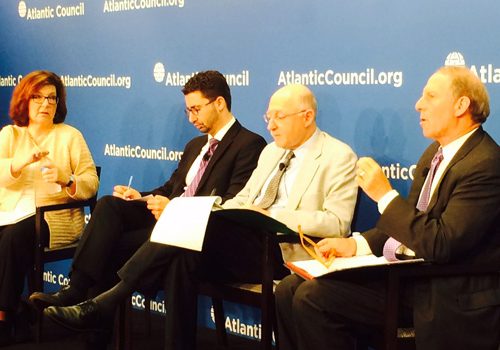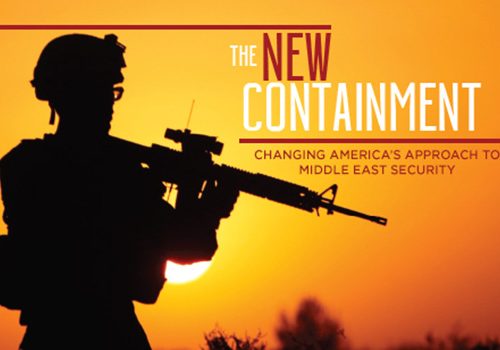A strategic review of US defense strategy and force posture in the Gulf is long overdue. In Artful Balance: Future US Defense Strategy and Force Posture in the Gulf, Bilal Y. Saab, Resident Senior Fellow for Middle East Security at the Atlantic Council’s Brent Scowcroft Center on International Security, and Barry Pavel, Vice President and Director of the Scowcroft Center, analyze how historic changes and developing trends in Washington, the Middle East, and across the globe—along with Iran’s nuclear ambitions and asymmetric threat—are all affecting US defense strategy in the Gulf.
Saab and Pavel argue that it is more critical than ever that US defense strategy in the Gulf be designed around reassuring partners, deterring adversaries, continuing to conduct counterterrorism missions, and advancing needed political development to help dry up the sources of extremism and promote internal stability. Underwriting a new force posture in the region to support that strategy effectively is just as important. The authors propose a more flexible and dynamic force posture in the Gulf that can help protect US long-term interests and those of its partners. To achieve this, they recommend a series of incremental improvements to current US posture to increase its geographical distribution, operational resiliency, political sustainability, and tactical robustness.
Saab and Pavel’s recommendations include:
- propose and then negotiate an offer of a mutual defense treaty with willing Arab Gulf states
- reduce the visibility, predictability, and vulnerability of US forces in the Gulf by further dispersing them, diversifying patterns of deployment, and exploring new basing concepts
- emphasize the maritime character of future US force posture in the Gulf by improving maritime defenses, anti-fast attack and craft capabilities, mine countermeasure capabilities, and intelligence, surveillance and reconnaissance (ISR) capabilities
- intensify security cooperation with Gulf partners, in order for them to improve their self-defense capabilities and carry a greater share of the burden



